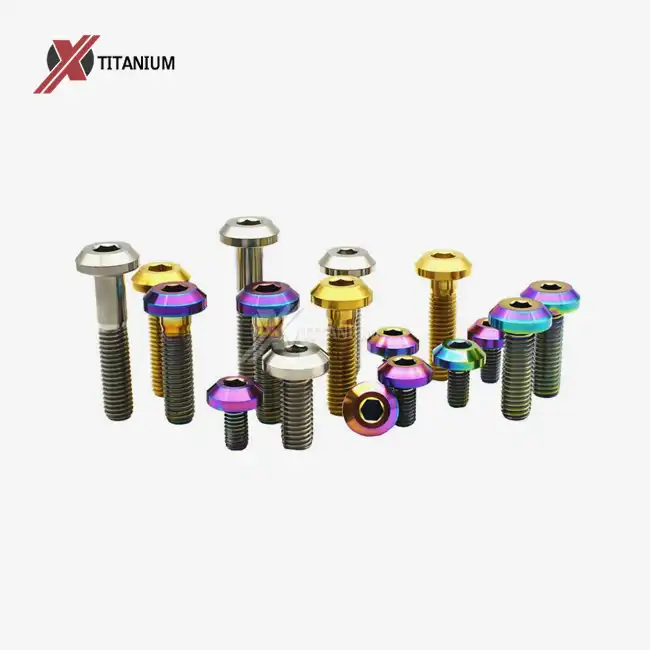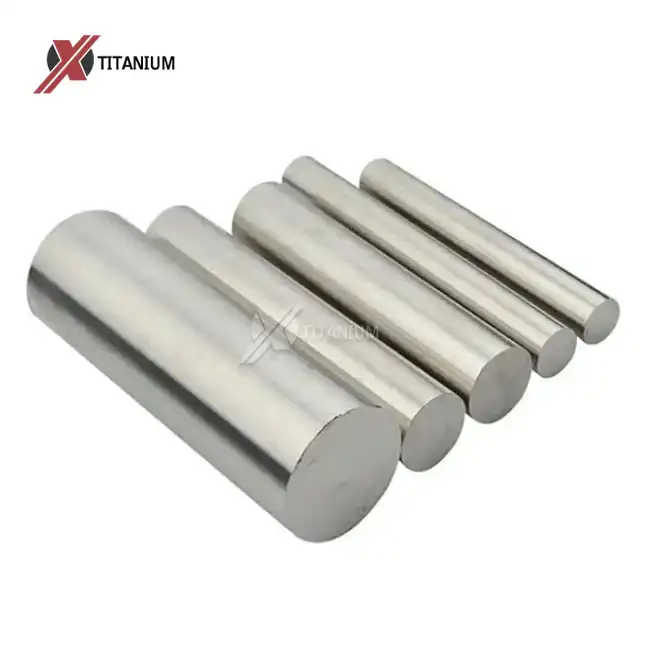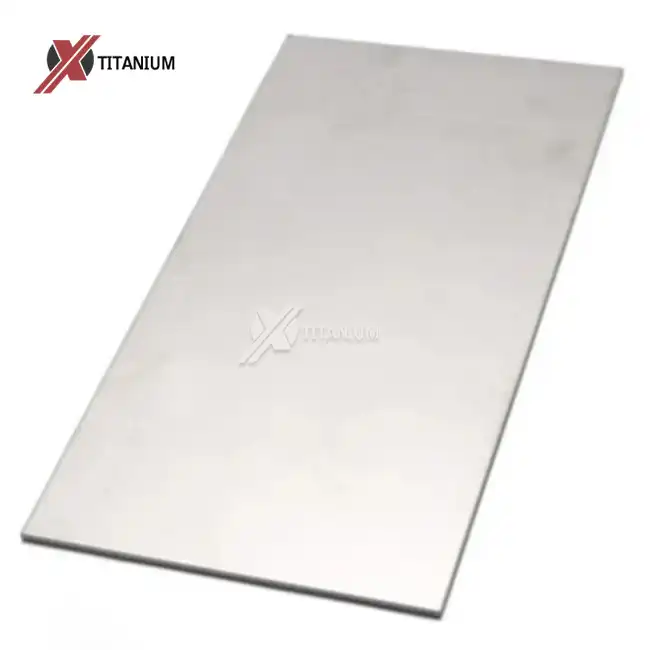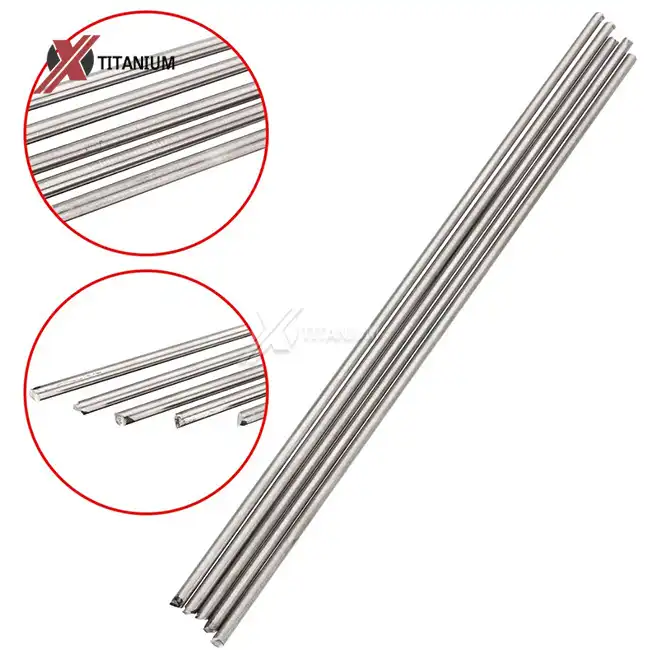The Evolution of Titanium in Motorcycle Racing
Titanium has revolutionized the world of motorcycle racing, offering a perfect blend of strength and lightness that few other materials can match. The journey of titanium in this high-octane sport is a testament to human ingenuity and the relentless pursuit of performance.
Historical Use of Titanium in Motorcycles
The integration of titanium into motorcycle design began in the mid-20th century, primarily in military and aerospace applications. As manufacturing techniques improved and costs decreased, titanium found its way into high-performance motorcycles. Initially, its use was limited to specialized components, but as the benefits became apparent, titanium's role expanded significantly.
In the 1980s and 1990s, titanium components started appearing in professional racing circuits. Exhaust systems, suspension components, and fasteners were among the first parts to be crafted from this wonder metal. The reduced weight and increased strength provided by titanium components translated directly into improved lap times and handling characteristics.
Advancements in Titanium Alloys for Racing Applications
As the demand for titanium in motorcycle racing grew, so did the research into specialized alloys. Engineers and metallurgists worked tirelessly to develop titanium alloys that could withstand the extreme conditions of high-speed racing. These efforts led to the creation of alloys with enhanced properties, such as improved heat resistance, reduced fatigue, and even greater strength-to-weight ratios.
One of the most significant advancements came with the development of beta titanium alloys. These alloys offer superior strength and are more easily formed into complex shapes, allowing for the creation of intricate components that were previously impossible to manufacture from titanium.
The Rise of Titanium Motorcycle Disc Bolts
Among the various titanium components used in racing motorcycles, disc bolts have gained particular prominence. Titanium motorcycle disc bolts serve a critical function in securing the brake rotors to the wheel hub. The extreme forces and temperatures experienced during high-speed braking make this application particularly demanding.
The adoption of titanium for disc bolts brought several advantages. The reduced weight of titanium bolts contributes to lower unsprung mass, improving suspension performance and handling. Additionally, the superior strength of titanium allows for smaller bolt sizes without compromising safety, further reducing weight and improving aerodynamics.
As racing teams and manufacturers recognized these benefits, titanium motorcycle disc bolts became standard equipment in professional racing. The technology soon trickled down to high-end production motorcycles and aftermarket parts, allowing enthusiasts to enjoy the same performance benefits as professional racers.
Key Features of Top-Tier Titanium Motorcycle Disc Bolts
When it comes to selecting the best titanium motorcycle disc bolts for racing applications, several key features distinguish top-tier products from the rest. These characteristics not only enhance performance but also ensure safety and longevity in the demanding world of motorcycle racing.
Material Composition and Grade
The foundation of any high-quality titanium motorcycle disc bolt lies in its material composition. The most commonly used grade for these bolts is Grade 5 titanium, also known as Ti-6Al-4V. This alloy contains 6% aluminum and 4% vanadium, offering an excellent balance of strength, weight, and corrosion resistance.
Some manufacturers are pushing the boundaries by developing proprietary titanium alloys that offer even better performance characteristics. These may include additions of elements like molybdenum or zirconium to further enhance strength or heat resistance.
Precision Manufacturing Techniques
The manufacturing process plays a crucial role in the performance of titanium motorcycle disc bolts. Top-tier bolts are typically produced using advanced CNC machining techniques, ensuring precise dimensions and tight tolerances. This precision is critical for proper fitment and load distribution.
Cold-forming processes may also be employed for certain bolt designs, as this can improve the material's grain structure and enhance fatigue resistance. The threading process is particularly important, with many high-end manufacturers using roll-forming techniques to create stronger threads without introducing stress concentrations.
Surface Treatments and Coatings
While titanium naturally forms a protective oxide layer, additional surface treatments can further enhance the performance of motorcycle disc bolts. Anodizing is a common treatment that not only improves corrosion resistance but also allows for color-coding, which can be useful for identification and aesthetics.
Some manufacturers apply specialized coatings to their titanium bolts. These can include dry lubricant coatings to prevent galling (a form of adhesive wear), or ceramic-based coatings to improve heat dissipation and wear resistance.
Design Considerations for Racing Applications
The design of titanium motorcycle disc bolts for racing goes beyond simple material selection. Engineers must consider factors such as bolt head design, thread pitch, and engagement length to optimize performance under racing conditions.
Many top-tier bolts feature a flanged head design, which distributes load over a larger area and can help prevent the bolt from loosening under vibration. The use of fine-pitch threads is also common in racing applications, as they provide greater clamping force and resistance to vibration-induced loosening.
Some manufacturers incorporate safety wire holes into their bolt designs, allowing for the use of lockwire to prevent loosening in critical applications. This feature is particularly important in endurance racing scenarios where bolt failure could have catastrophic consequences.
Choosing the Right Titanium Disc Bolts for Your Racing Motorcycle
Selecting the appropriate titanium motorcycle disc bolts for your racing application is a critical decision that can significantly impact your bike's performance and safety. With numerous options available in the market, it's essential to consider several factors to ensure you're making the best choice for your specific needs.
Understanding Your Racing Requirements
Before delving into the technical specifications of titanium disc bolts, it's crucial to assess your racing requirements. Different racing disciplines place varying demands on motorcycle components. For instance, superbike racing may require bolts that can withstand extreme heat and frequent high-speed braking, while endurance racing might prioritize long-term durability and resistance to fatigue.
Consider the following aspects of your racing environment:
- Track characteristics (e.g., number of corners, surface conditions)
- Typical race duration
- Climate and weather conditions
- Frequency of maintenance intervals
Understanding these factors will help you prioritize the most critical features when selecting titanium motorcycle disc bolts.
Compatibility and Fitment
Ensuring proper fitment is paramount when choosing titanium disc bolts. Incompatible or improperly sized bolts can lead to safety issues and potential failure during racing conditions. Consider the following aspects of compatibility:
- Bolt diameter and length
- Thread pitch and type
- Head style and dimensions
- Torque specifications
It's advisable to consult your motorcycle's manual or speak with a qualified technician to determine the exact specifications required for your particular model. Some racing organizations may also have specific requirements or restrictions regarding fastener types, so be sure to check the relevant regulations for your racing class.
Evaluating Performance Metrics
When comparing different titanium motorcycle disc bolts, several performance metrics can help guide your decision:
- Tensile strength: This indicates the bolt's ability to resist breaking under tension.
- Yield strength: The stress at which the bolt begins to deform permanently.
- Fatigue resistance: The bolt's ability to withstand repeated cycles of stress without failure.
- Corrosion resistance: Important for longevity, especially in harsh environments.
- Thermal properties: How well the bolt handles and dissipates heat.
Look for bolts that offer a balance of these properties that aligns with your racing needs. Reputable manufacturers should be able to provide detailed specifications and testing data for their products.
Cost Considerations and Long-Term Value
While titanium motorcycle disc bolts represent a premium component, it's important to consider their long-term value. Higher-quality bolts may come with a higher initial cost but can offer significant benefits in terms of performance, durability, and safety.
When evaluating cost, consider factors such as:
- Expected lifespan of the bolts
- Potential performance gains
- Reduced maintenance requirements
- Resale value of the motorcycle (premium components can increase overall value)
It's often worth investing in top-tier titanium bolts, especially for serious racing applications where performance and reliability are paramount.
Manufacturer Reputation and Support
The reputation of the manufacturer should play a significant role in your decision-making process. Look for companies with a proven track record in producing high-quality titanium components for motorcycle racing. Consider factors such as:
- Manufacturing standards and quality control processes
- Racing pedigree and partnerships with professional teams
- Customer support and warranty offerings
- Availability of technical documentation and installation guides
Choosing a reputable manufacturer ensures that you're getting a product that has been thoroughly tested and validated for racing applications.
By carefully considering these factors, you can select titanium motorcycle disc bolts that will meet the demands of your racing endeavors, providing the perfect balance of performance, safety, and durability.
Conclusion
As we look towards 2025 and beyond, the importance of titanium motorcycle disc bolts in racing applications cannot be overstated. These seemingly small components play a crucial role in the overall performance and safety of racing motorcycles. By leveraging the unique properties of titanium, manufacturers continue to push the boundaries of what's possible in terms of strength, weight reduction, and durability.
The best titanium disc bolts for racing motorcycles in 2025 will likely feature advanced alloys, innovative surface treatments, and design optimizations that cater specifically to the demands of high-performance racing. As technology progresses, we can expect to see even more specialized titanium bolts that offer improved heat management, enhanced vibration resistance, and potentially even smart features for real-time monitoring.
For racers and teams looking to gain every possible advantage on the track, careful selection of titanium motorcycle disc bolts is essential. By considering factors such as material composition, manufacturing techniques, specific racing requirements, and long-term value, you can make an informed decision that contributes to your overall racing success.
As the motorcycle racing industry continues to evolve, staying informed about the latest advancements in titanium fastener technology will be crucial. Whether you're a professional racer, a team manager, or an enthusiast building a high-performance machine, the right titanium disc bolts can make a significant difference in your motorcycle's performance and reliability.
For more information about high-quality titanium products, including motorcycle disc bolts and other specialized components, please don't hesitate to contact us at info@cltifastener.com or djy6580@aliyun.com. Our team of experts is always ready to assist you in finding the perfect titanium solutions for your racing needs.




